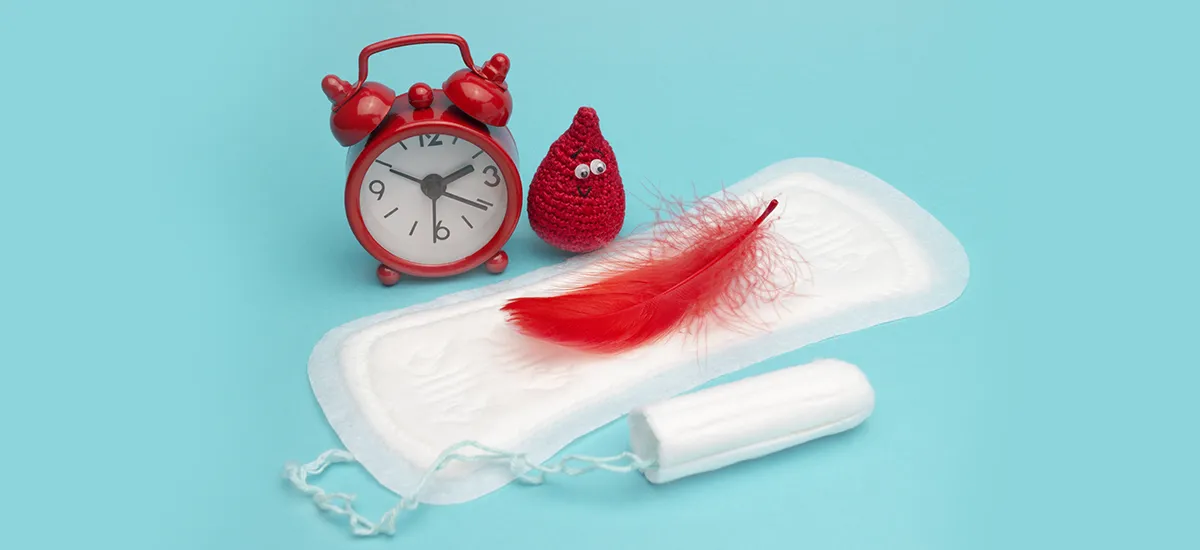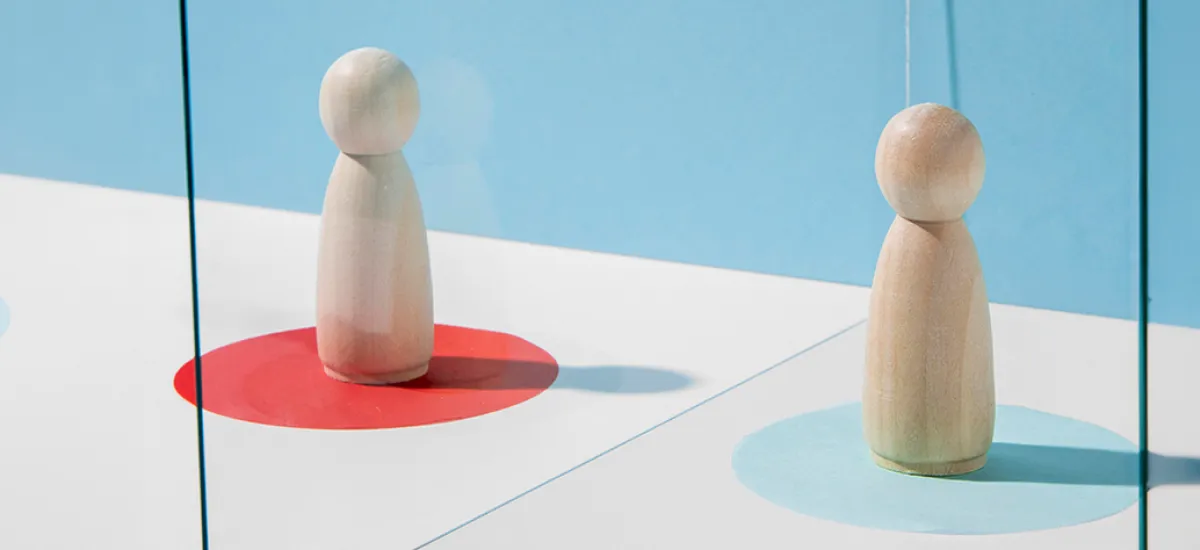Every woman experiences a rollercoaster of hormonal changes throughout her life. From puberty jitters to the mysterious mood swings that seem to come out of nowhere, they embrace these changes with open arms.
Most women don't even realize that their behavior is associated with hormone change. Plus, in many households, such topics are only whispered about or brushed under the rug. But it's all (the hormonal changes, not the whispering) part of being a woman.
In this article, you will learn how different hormones affect different phases of your life and the best way to deal with them. You will explore how these natural ups and downs can be a source of strength and help you radiate confidence throughout every remarkable phase of life.
Hormonal fluctuations don't just affect your physique. They also have a significant impact on your mental and emotional well-being. Their effect varies in different phases of your life. How? Take a look here -
· Puberty
Puberty can start as early as 8 years of age. During this stage, there's a sudden surge of estrogen and progesterone hormones. This causes several physical changes -
· Development of breasts
· Widening of hips
· Growth of body hair
· Oily skin and acne
Many girls enjoy the former two changes, while others start feeling uncomfortable because of their changing bodies. There's nothing to be ashamed of. Everyone your age goes through the same hormonal changes in women. You need to embrace your changing bodies.
· Start wearing a bra.
· Wear loose-fitting T-shirts.
· Shop for clothes for your growing body.
· Use good cleansing face wash to deal with oily skin.
This was about the physical changes. The emotional rollercoaster ride is something else. Every girl in her puberty starts overthinking and has extreme mood swings.
· You might feel disconnected from your close ones.
· You might start getting attracted to someone.
· You might lose interest in things you used to like and develop a taste for completely new things.
This is the time when you explore your likes and dislikes, try new things, and enjoy this blooming phase.
· Pregnancy
Some researchers believe that food cravings are associated with hormonal changes in women. During pregnancy, the human chorionic gonadotropin (hCG) hormone and increased levels of estrogen and progesterone are generated. An increase in these levels keeps mommy happy and excited throughout the pregnancy.
After you deliver the baby, estrogen and progesterone levels drop. But prolactin levels exponentially increase. This hormone is responsible for stimulating the growth of mammary glands. That's why your breasts look fuller and start generating milk.
To adapt to your changed physique, you can -
· Use maternity bras that are soft and give easy access to the baby.
· Wear soft, cotton, or woolen clothes to maintain your body temperature.
· Use panty liners to deal with white vaginal discharge.
· Menopause
Menopause is the phase of a woman's life where they cease to have periods. This is when the estrogen and progesterone levels are completely dropped. Women after menopause feel extreme relief from the perimenopausal symptoms.
Perimenopause is the period before menopause when the hormone levels start dropping. The hormonal changes symptoms include -
· Hot flashes
· Excessive sweating
· Irregular sleep patterns
· Irritability
· Anxiety
· Depression
· Irregular periods
There's no way to avoid these symptoms, but you can make certain lifestyle changes to minimize the effect of the symptoms. You can -
· Draw a sleep schedule.
· Exercise regularly to avoid weight gain and keep pelvic floor muscles strong.
· Wear cotton clothes to absorb the excess sweat.
· Avoid processed food that can cause a nutrient imbalance in the body.
· Include healthy alternatives in your diet as per your dietician’s suggestions.
Practical tips for better hormonal health
Apart from these, you can do a few other things to manage hormonal changes in women.
The first step is to learn to recognize your body's hormonal changes and symptoms. You can keep a record of all your symptoms in a calendar and analyze them to see if there is a pattern. You can even use the free period tracking apps available on the internet.
While you record these symptoms, also try to understand if there are certain triggers. For instance, eating spicy food during your period can cause more cramps, or not getting 7 hours of sleep can make you more irritable. Practice self-awareness to manage your symptoms better.
Whenever you feel you are getting overwhelmed, try to calm your mind down. You can -
· For relaxation, do yoga poses like balasana, bridge pose, cat-cow stretch, legs up the wall, etc.
· Indulge in aromatherapy with essential oils like peppermint, chamomile, and clary sage. You can diffuse these oils or put them in a warm bath, or mix them with a carrier oil and massage your body.
· Invest in an activity that will distract you. It could be swimming, painting, dancing, or listening to music.
Every woman around you experiences these hormonal changes. You are responsible for supporting them during hard times and cheering them up during good times. You can do a few things to make them feel better.
· Encourage open communication about hormonal changes in women.
· Actively listen to them when they share something with you. Women often need someone to listen to and empathize with them about their problems.
· Don't assume anything. If you are confused, ask the question.
· Be sensitive about what you ask. Questions like ‘Why are you always like this?’ are not helpful. Instead, ask ‘What would help you feel better?’ or ‘Is there anything I can do for you?’
· Help the women in your home with household chores, especially if they are on their periods. This is a particularly difficult time because of the cramps.
· Respect their boundaries. If they ask for some me-time, give it to them.
If they tell you a particular thing and you aren't aware of how to help or how it works, educate yourselves on the matter. Read from reliable sources. Don't rely on social media reels, as they might not have the most accurate content.
When to see a doctor
Every woman needs to see a doctor from time to time. It could be for regular checkups, screening tests, or for something that's troubling you. Girls need to see a gynecologist after they start having periods. Consult your doctor to start the HPV vaccine.
· Women in their mid-20s to mid-40s must schedule check-ups at least once a year. You need to start getting pap smears every three years to screen for cervical cancer.
· Women who wish to use hormonal contraceptives must schedule a consultation to know about all their options. You can then decide what's the best choice with your doctor's help.
· Menopausal women must get a customized diet plan to deal with all the hormonal changes in women.
· If you experience unmanageable symptoms that won't go away even after a few days, rush to the doctor. Get tested for possible infections and get help managing the symptoms.
Take care of yourself FIRST - Always
Hormonal changes in women are a natural part of their life. The symptoms of these changes can sometimes feel a lot to handle, but they are always manageable with the proper means. Never be embarrassed by any of these hormonal fluctuations - they are a part of being a woman. Embrace these changes with open arms.
Did you know insurance can be a great help to you too? When you take a women-centric insurance plan, you insure your future and set up financial support for future treatments, medicines, emergencies, and more. You can find a great coverage plan with Future Generali's HEALTH POWHER.

Ayushman Bharat, launched in 2018, is one of India's most ambitious healthcare initiatives. It provides accessible and affordable healthcare to millions of citizens across the nation. A...
Read More
Are you giving your breast health the attention it deserves amid your busy schedule? Important, yes, but often overlooked amidst a busy schedule. Simple breast care and...
Read More
Pain and discomfort are indeed a part of the package of being a woman but they can be managed through information and medical help. Women's health awareness...
Read More
Menstruation is a natural biological process experienced by all women. And, as we all know, it is often shrouded in secrecy and stigma. However, understanding and maintaining...
Read More
Have you ever felt like your emotions are on a rollercoaster ride at certain times? It could be your hormones! Hormonal fluctuations play a powerful role throughout...
Read More
Migraine headaches are a prevalent neurological condition often characterised by intense throbbing pain on one side of your head, accompanied by nausea, vomiting, and sensitivity to light...
Read More
Bringing new life into the world is undeniably one of the most miraculous journeys a woman can embark upon. It's a profound blend of joy, anticipation, and...
Read More
Invisible yet insidious, air pollution is a stealthy threat that weaves itself into the very breath we take. It's a cocktail of harmful gases and particles that...
Read More
Water is the elixir of life. Yet, polluted water can steal the well-being of millions, particularly women and girls. The effects of water pollution are far beyond...
Read More
Starting a family is one of the best feelings in the world. Unfortunately, some women face challenges when trying to start a family. But why is that...
Read More
Section 80D of Income Tax is an important provision for claiming health insurance tax benefits for individuals and families (including Hindu Undivided families, i.e., HUF). It provides...
Read More
A zillion questions pop in the head as soon as you get the good news. What should I eat? What should I avoid? Work life balance? Should...
Read More
Regarding health insurance, top-up and regular health insurance plans are two prevalent options. While both provide coverage for medical expenses, there are some important differences. Regular health...
Read More
What is the Mahatma Jyotiba Phule Jan Arogya Yojana? The Mahatma Jyotiba Phule Jan Arogya Yojana (MJPJAY) is a health insurance policy run by the Maharashtra government...
Read More
World Cancer Research Fund Internation found around 18.1 million cancer cases globally in 2020. Of these cases, 9.3 million were linked to men, and 8.8 million were...
Read More
Picture this: It's a cosy Sunday morning, and you're curled up with a cup of coffee, scrolling through your social media feed. Amidst the clothing videos and...
Read More
In today's dynamic world, navigating the complexities of health insurance can be daunting for many of us. This is where HIPAA comes into the picture. HIPAA stands...
Read More
Women's mental health is a complex dance between societal expectations and biological changes. Societal pressures to be perfect caregivers and achieve career success can create overwhelming stress....
Read More
It is a relief when your period shows up on time, but sometimes you wish it came sooner rather than later. Sometimes, you are thinking, "How can...
Read More